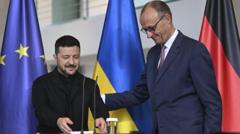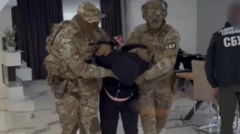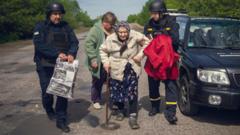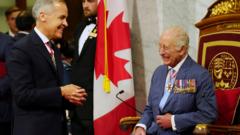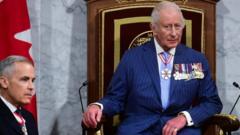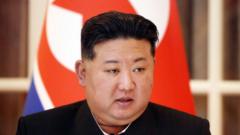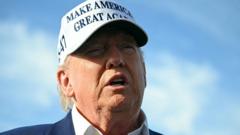Tensions persist ahead of NATO's June summit as President Trump’s stance on Ukraine clashes with allied nations, creating uncertainty over the event.
NATO Summit Looms Amid Tensions Over Trump and Ukraine

NATO Summit Looms Amid Tensions Over Trump and Ukraine
NATO's upcoming summit aims for focus on spending, but uncertainties emerge due to differing perspectives on Ukraine.
The upcoming NATO summit, scheduled for June 24-25 in the Netherlands, is poised to navigate a complex landscape marked by differing opinions on Ukraine. Secretary General Mark Rutte aims for a smooth meeting, steering clear of the discord evident in the previous summit two years ago. However, two major factors pose challenges: President Trump’s anticipated attendance and Ukraine's aspirations for NATO membership, which Trump opposes.
The backdrop involves a significant shift in U.S. commitment to European security, as American officials indicate changes in troop rotations could be forthcoming. This has raised alarms among NATO allies regarding their defense posture. Trump appears to be less enthusiastic about Ukrainian support and is attempting to foster closer ties with Russia, complicating discussions that align with NATO’s collective defense principles.
President Zelensky of Ukraine is also expected to participate, but his role remains uncertain in light of Trump's interactions with him. Despite uncertainties, the U.S. Ambassador to NATO, Matthew G. Whitaker, expressed optimism that Zelensky would attend, albeit the full context of his participation is still under discussion, including whether he will receive the prominence usually accorded to heads of state at the summit's opening dinner.
As the summit date approaches, European leaders and diplomats are keenly aware that how these geopolitical dynamics unfold will significantly influence NATO's direction and unity in the face of ongoing challenges from Russia.
The backdrop involves a significant shift in U.S. commitment to European security, as American officials indicate changes in troop rotations could be forthcoming. This has raised alarms among NATO allies regarding their defense posture. Trump appears to be less enthusiastic about Ukrainian support and is attempting to foster closer ties with Russia, complicating discussions that align with NATO’s collective defense principles.
President Zelensky of Ukraine is also expected to participate, but his role remains uncertain in light of Trump's interactions with him. Despite uncertainties, the U.S. Ambassador to NATO, Matthew G. Whitaker, expressed optimism that Zelensky would attend, albeit the full context of his participation is still under discussion, including whether he will receive the prominence usually accorded to heads of state at the summit's opening dinner.
As the summit date approaches, European leaders and diplomats are keenly aware that how these geopolitical dynamics unfold will significantly influence NATO's direction and unity in the face of ongoing challenges from Russia.


